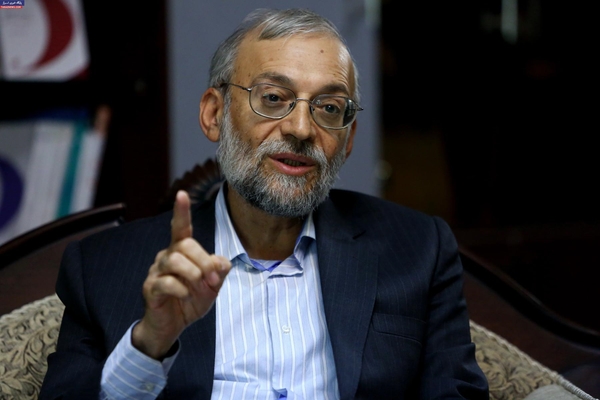In an exclusive interview with the Tasnim News Agency, Chief of the Iranian Judiciary’s Human Rights Council Mohammad Javad Larijani highlighted the serious flaws in the process of diplomatic negotiations that led to the Joint Comprehensive Plan of Action (JCPOA), the July 2015 nuclear deal between Tehran and the Group 5+1 (Russia, China, the US, Britain, France and Germany).
The primary mistake that Iranian negotiators made in the process of the nuclear talks was not opting for the ‘confidence building’ technique to get suitable results, Larijani, also a theoretician and political expert, stressed.
What Iran undertook to do under the JCPOA is quite well-defined and explicit, while the other side’s obligations cannot be clearly defined at all, he deplored.
The vague idea that the ‘nuclear-related’ sanctions against Iran would be lifted was not robust enough, because many non-nuclear sanctions are somehow linked with the nuclear-related ones, Larijani argued, adding, “Above all, we have made no mention of the structure of the sanctions in the deal.”
“The US has completely retained the structure of the sanctions, and is not intending to lift them in the near future,” he noted.
The flawed documentation and ill-definition of commitments in the JCPOA and the subsequent UN Security Council Resolution 2231 enable Washington to make very little concessions to Iran, Larijani explained, adding that having control over how to interpret the deal has given US politicians the power to impose what they want.
Sustaining the structure of the sanctions also allows the US to apply the model of nuclear negotiations to other areas, Iran’s military and missile capabilities, he pointed out, saying many nuclear-related sanctions can be linked to Iran’s missile program only with a “different tag.”
In the eyes of the US, the sanctions forced Iran to negotiate, he went on to say, adding that certain signs of frustration from inside Iran led the US to the conclusion that Iran resists force, unless that force is too strong.
According to Larijani, putting restrictions on Iran’s nuclear program was at the bottom of the list of US demands, predicting that Iran should now expect “a very huge set of sanctions.”
Iran and the six countries on July 14, 2015, reached a conclusion over the text of the JCPOA after some two years of diplomatic talks.
The 159-page accord took effect in January 2016 and was supposed to terminate the nuclear-related sanctions against Iran all at once, but its implementation has been hampered mainly due to US policies.
In October 2015, Leader of the Islamic Revolution Ayatollah Seyed Ali Khamenei sent a letter to President Hassan Rouhani and highlighted nine main points that the administration needs to take note of regarding the course of JCPOA implementation.
The Leader has also repeatedly warned of the US failure to honor commitments under the deal.
“The duty of the other side was removing the sanctions, but it has not fulfilled that duty, meaning that it has lifted part of the sanctions in some way, but the sanctions have not been lifted practically,” Imam Khamenei said on June 15.
The Leader also lashed out at the US for fully keeping the primary sanctions in place, which has in turn affected the secondary sanctions that were to be lifted.
